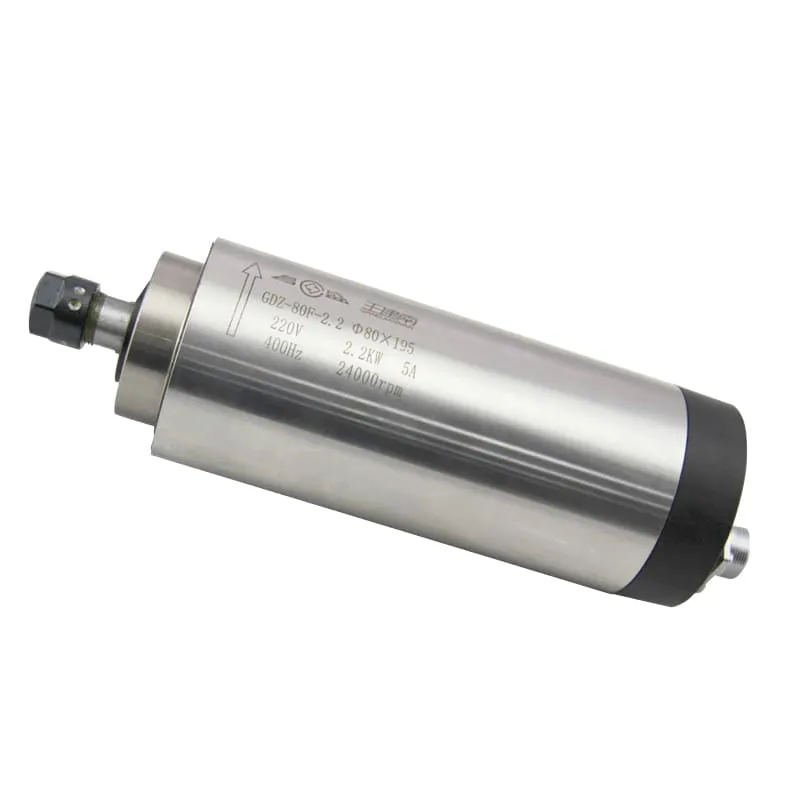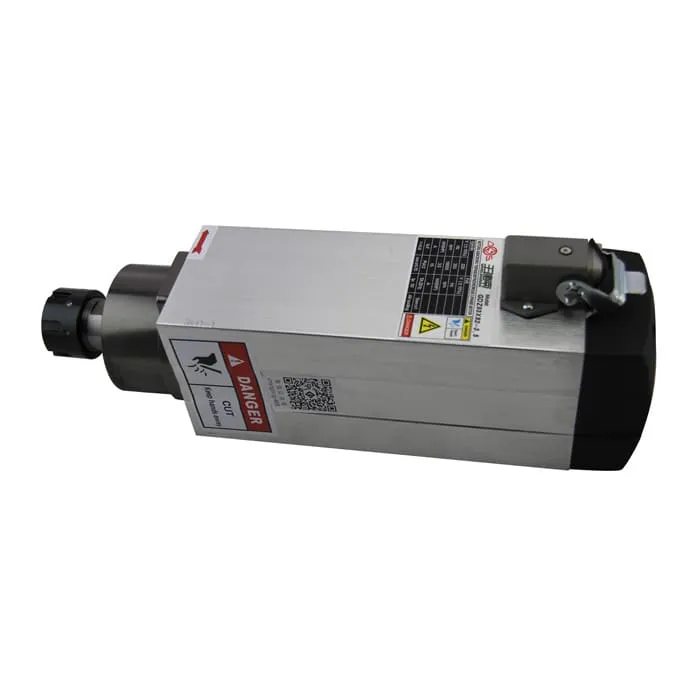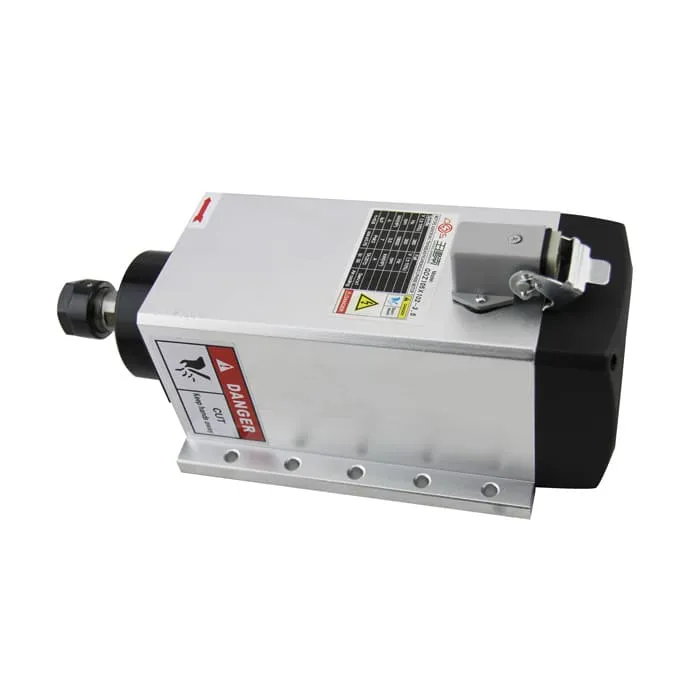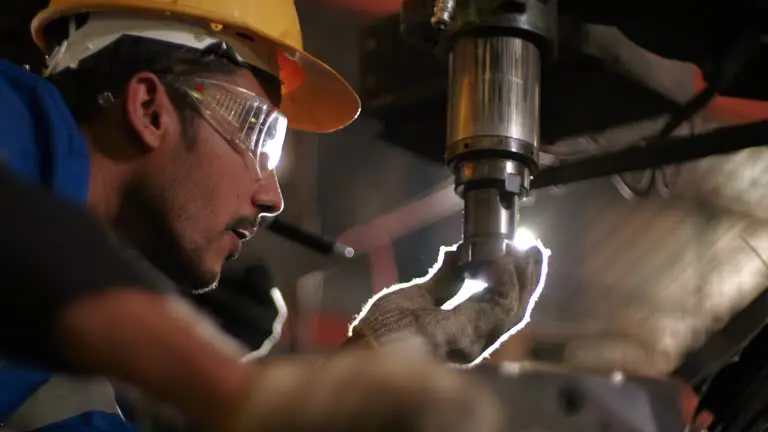What is a CNC Machinist?
A CNC machinist is a skilled professional who operates computer numerical control (CNC) machines to produce precision parts and components. These highly trained specialists combine technical expertise with hands-on manufacturing skills to create everything from aerospace components to medical devices.
Role and Responsibilities
CNC machinists are the backbone of modern manufacturing. Their primary responsibilities include:
- Programming CNC machines
- Setting up tooling and workpieces
- Monitoring machining processes
- Quality control inspection
- Maintaining equipment

Working with advanced equipment like the 2.2KW ER16 Air-Cooled Spindle requires extensive training and expertise
Essential Skills
Technical Skills
- Blueprint reading
- CAD/CAM software
- G-code programming
- Precision measurement
- Tool selection
Soft Skills
- Attention to detail
- Problem-solving
- Communication
- Time management
- Teamwork
Education and Training
Becoming a CNC machinist typically requires:
- Formal Education
- Technical school certificate
- Associate’s degree
- Apprenticeship programs
- On-the-Job Training
- Machine operation
- Safety procedures
- Quality control
- Maintenance protocols

Operating systems like the 3.5KW ER25 Air-Cooled Spindle demands specialized knowledge
Daily Work Environment
CNC machinists work in:
- Manufacturing plants
- Machine shops
- Production facilities
- Prototyping labs
Tools and Technology
Machine Types
- CNC Mills
- CNC Lathes
- Multi-axis machines
- EDM equipment
Measurement Tools
- Micrometers
- Calipers
- CMM machines
- Gauges

Modern facilities often use equipment like the 3.5KW ER20 Air-Cooled Spindles for precision work
Industry Sectors
CNC machinists work across various industries:
| Industry | Common Parts | Required Skills |
|---|---|---|
| Aerospace | Engine components | High precision |
| Medical | Implants | Clean room experience |
| Automotive | Engine parts | Volume production |
| Defense | Weapon components | Security clearance |
Career Progression
Entry Level
- Machine operator
- Setup assistant
- Quality control
Mid-Level
- Lead machinist
- Programming specialist
- Setup technician
Advanced
- Shop supervisor
- Production manager
- Manufacturing engineer
Quality Control Responsibilities
CNC machinists ensure:
- Dimensional accuracy
- Surface finish quality
- Material specifications
- Production tolerances
Safety and Compliance
Important safety aspects include:
- PPE requirements
- Machine guarding
- Emergency procedures
- Material handling
Programming Skills
Essential programming knowledge:
- G-code basics
- M-code functions
- Tool compensation
- Work coordinates
Workplace Challenges
Common challenges include:
- Tight tolerances
- Complex geometries
- Material variations
- Deadline pressure
Industry Standards
Knowledge of standards:
- ISO specifications
- ANSI guidelines
- GD&T principles
- Quality systems
Future Trends
Emerging technologies:
- 5-axis machining
- Hybrid manufacturing
- IoT integration
- AI-assisted programming
Professional Development
Continuing education:
- Advanced programming
- New equipment training
- Industry certifications
- Management skills
FAQs
1. What education is required to become a CNC machinist?
While some enter the field with a high school diploma and on-the-job training, most employers prefer candidates with technical school certificates or associate’s degrees in machining technology.
2. How long does it take to become a skilled CNC machinist?
Typically, it takes 2-4 years to become proficient. This includes formal education and hands-on experience. Master level expertise may require 5-10 years.
3. What is the typical work schedule for a CNC machinist?
Most work full-time during standard business hours, though some positions may require shift work. Overtime is common during busy periods or for urgent projects.
4. What’s the career outlook for CNC machinists?
The field offers strong job security with growing demand as manufacturing becomes more automated. Skilled machinists are particularly valuable in high-tech industries.
5. What are the physical demands of being a CNC machinist?
The job requires standing for long periods, lifting up to 50 pounds, good hand-eye coordination, and attention to detail. Some positions may require working in noisy environments.
Conclusion
A career as a CNC machinist offers a unique blend of traditional craftsmanship and modern technology. It’s a profession that demands continuous learning and attention to detail while providing opportunities for advancement and specialization. The role is essential in modern manufacturing, making it a stable and rewarding career choice.
Key takeaways:
- Combines technical and practical skills
- Requires ongoing education and training
- Offers various career advancement paths
- Provides stable employment opportunities
- Demands precision and attention to detail
For those interested in pursuing a career in CNC machining or looking to upgrade their machining capabilities, we invite you to contact us for guidance on equipment selection and technical specifications that match your career goals or production needs.

